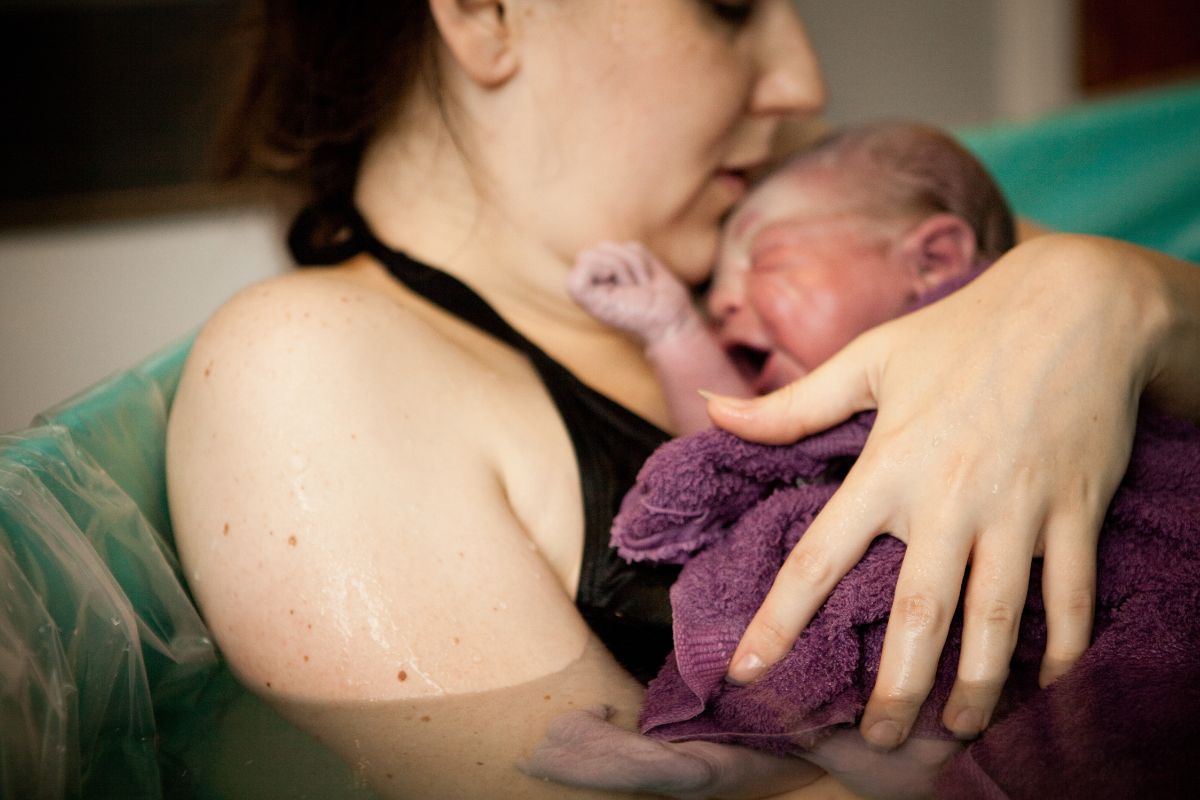A healthy pregnancy is every expectant mother’s best bet for an equally healthy birth. It is the only thing she has control over, while everything else is entirely out of her hands. That’s why it is very crucial to get an early head start on prenatal care to be able to have a better chance of achieving a healthy pregnancy. In fact, you can start even way before the actual pregnancy occurs by visiting your doctor or health care provider of choice.
“When my wife was pregnant with our first child, we knew it was super important to be organised. Running a busy West Australian roofing company, we were very mindful that we needed to look at our birthing options as early as possible.” says Nick Marsden, who runs a prominent Perth roof restoration service.
Options for Childbirth Support in Western Australia
Each mother has a specific preference when it comes to the kind of childbirth care and support. Good thing that WA offers several options that cater to the different situations of the expectant mum and her spouse or partner. Some of these are the following.
General Practitioners
Your GP is your top doctor or your go-to practitioner once you suspect or realise that you are pregnant. With them, you can discuss the different options for your pregnancy care, where to give birth, and if you’ve been seeing them for a certain illness, a discussion of possible issues or do’s and don’ts because of these pre-existing conditions.
There are general practitioners from many hospitals who also offer shared care. This means that the GP will provide prenatal checkups up to 20 weeks of your pregnancy. From here on, the shared care appointments with a hospital commence. If no complication is seen, you may continue seeing the GP until the 36th week when you will be seen by the hospital professionals until the date of the baby’s delivery.
Obstetricians
You can be taken care of right away by an obstetrician; a practitioner that specialises in caring for women during pregnancy and after birth and is actually in charge of delivering the baby and other surgeries that are related to giving birth. As a doctor, they treat conditions and illnesses that are unique to pregnancy.
Private patients get to choose their doctors and hospitals and the costs will either be paid out of pocket or either partially or fully covered by private insurance. Prenatal appointments with obstetricians are usually not covered by private insurance. However, they may be covered in part by Medicare.
Private Practice Midwives
These are midwives who are not connected to any community midwifery program nor linked to any hospitals. However, some of them may have admitting rights to a few hospitals in Western Australia. If you have a low-risk pregnancy, prenatal checkups can be done by these midwives in the comfort of your home or at their private office or place of business, if you mutually agree.
They will be in charge of your entire pregnancy care up to birth and postpartum period, where you will be benefiting from continuity of care. Please note though that they will have a backup midwife as it is required to have two midwives in attendance when you give birth and who will also act as backup when they can’t attend for some reason.
Publicly Funded Midwives
These are midwives who work in the Community Midwifery Program or anything similar who lend their service to the public. Getting services from them means they will be in charge of your care from start to finish of your pregnancy journey. Take note that the group practices of these midwives can also extend to providing home birth services.
Where to give birth in Western Australia

Depending on where you reside in Western Australia, how much are you willing to spend, how much your insurance can cover, or the recommendation of your doctor based on your risk factors, the following are some of your options.
Birthing Centre
This is ideal for those healthy, uncomplicated, and low-risk pregnancies and are covered by Medicare. This comes with an option to have you transferred to a hospital should you want it or if there will ever be a need due to complications during labour.
Home Birth
Another option for a healthy and uncomplicated pregnancy is delivering the baby at home. However, anything is a possibility that even those low-risk deliveries can sometimes meet some unforeseen issues that need to be taken care of at a better-equipped facility. With this, you can request to be brought to the hospital. These are typically covered by Medicare for eligible midwives.
Public Care in Public Hospitals
Western Australia pregnant residents have the privilege of maternity services in its public hospitals and the costs are typically covered by Medicare. In fact, general hospital care is provided by their doctors, GPs, and midwives at any public hospital that is closest to your place of residence.
Some of the maternity hospitals within the Perth metropolitan area include the following:
- Armadale Health Service – 9391 2000 (ahs@health.wa.gov.au)
- Fiona Stanley Hospital (Family Birth Centre) – 6152 9416 (Fsh.FamilyBirthingCentre@health.wa.gov.au)
- Fiona Stanley Hospital (external site) – 6152 2222
- Joondalup Health Campus – 9400 9400
- King Edward Memorial Hospital – (08) 6458 2222
- King Edward Memorial Hospital (Family Birth Centre) – (08) 6458 1800
- Osborne Park Hospital – 6457 8010
- St John of God Midland Public Hospital – (08) 9462 4000
Private Care in Public Hospitals
Australia’s public maternity hospitals provide high-quality pregnancy, birth, and postnatal care. However, it is also possible to get special attention even if you’re utilising a public facility and service.
In short, even public hospitals cater to private pregnancy care should you need it in Western Australia and Medicare usually covers the costs. A few hospitals even allow the sharing of services between the doctor and the hospital staff to ensure utmost care.
Private Doctors in Private Hospitals
When you desire undivided attention when it comes to your pregnancy care, taking the private service route is the way to go. However, be prepared to spend out of pocket if you don’t have private health insurance.
This option is very flexible if you don’t want to limit the type of service that you will need. For example, in cases where complications arise during labour, your doctor may refer you to a public hospital.
